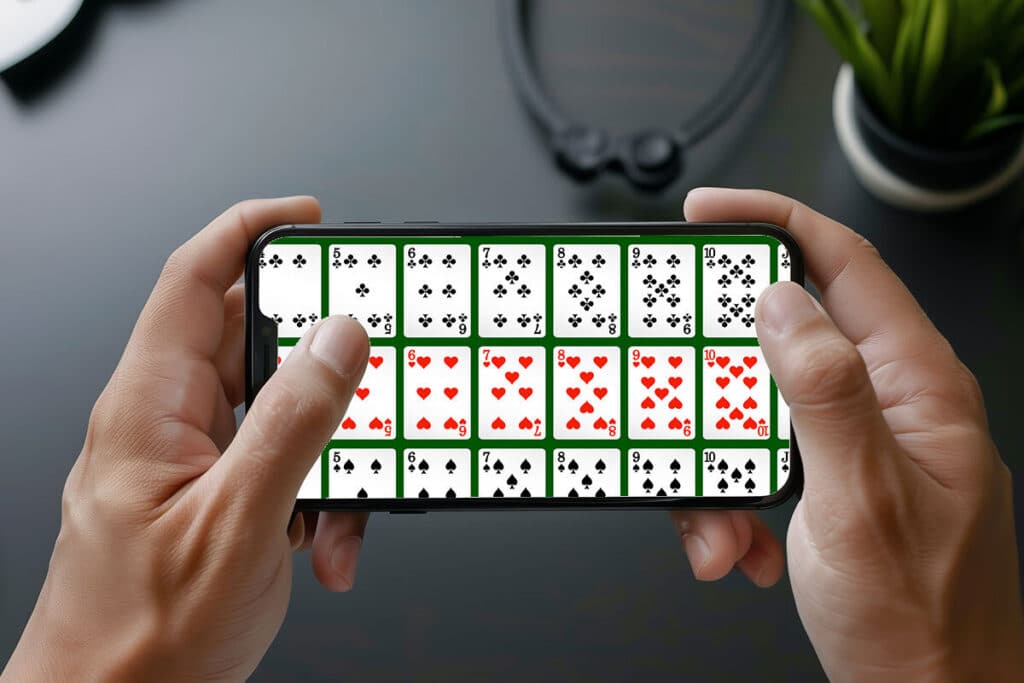You know what’s funny? I was cleaning out my parents’ attic last weekend and found this beaten-up box of playing cards that must’ve been there since the 80s. Half the cards were bent, a few were missing, and they smelled like that musty cardboard scent that old games get. It got me thinking about how dramatically things have changed. These days, my kids don’t even know what it’s like to have a incomplete deck ruin game night. They just tap their phones and boom—perfect digital cards, ready to go. But here’s the thing that surprised me: switching to screens hasn’t killed the magic of these classic games. If anything, it’s made them more exciting than they’ve been in decades.
1. No More “Sorry, Can’t Find Four Players”
Last month, my neighbor mentioned she hadn’t played bridge in years because her usual group had scattered—one moved to Florida, another passed away, and the third developed arthritis that made holding cards painful. Then her daughter showed her this bridge app, and now Carol’s back to playing three times a week with people from all over the country. She even laughs about how one of her regular partners turned out to be a retired professor from New Zealand who shares her obsession with mystery novels. The whole “finding enough people who actually know the rules” problem just… disappeared. My teenage nephew, who couldn’t care less about card games normally, got hooked on spades after discovering he could play quick matches between classes. Digital platforms have basically solved the logistics nightmare that used to kill game nights before they started.
2. Seeing Patterns You Never Noticed Before
I thought I was pretty decent at gin rummy until I started playing online and realized I’d been making the same strategic mistakes for twenty years. The app tracks everything—which cards you typically discard, how often you go for quick wins versus building big hands, even your success rate with different starting combinations. It’s not like having a computer coach breathing down your neck; more like having a really smart friend who remembers every hand you’ve ever played and can point out habits you didn’t even realize you had. Last week, I discovered I was unconsciously avoiding certain card combinations that are actually statistically favorable. Without the digital tracking, I probably would’ve kept making that same error forever. The crazy part is how this data reveals the hidden mathematics behind games that always felt purely intuitive—especially when you’re trying to play games for money and every decision counts.
3. Making Friends Through Fifty-Two Cards

My dad’s been playing online poker for about five years now, and his regular Thursday night group has become as tight-knit as any neighborhood crew. These guys know each other’s kids’ names, remember birthdays, and last year they even organized a charity drive when one member’s family faced medical bills. They’ve never met in person, but the bonds feel completely real. The shared experience of bluffing, winning, and losing together creates this weird intimacy that’s hard to replicate in other online spaces. Unlike social media, where you’re mostly performing for an audience, card games force genuine interaction. You can’t fake your way through a poker hand or pretend to be someone you’re not when you’re making split-second strategic decisions. The personalities emerge naturally through playing styles and chat banter.
4. Learning Without Looking Stupid
Remember being the new person at a card table, constantly asking “Wait, what beats what again?” while everyone rolled their eyes? Digital games have eliminated that particular form of social torture. The computer doesn’t judge you for checking the rules for the hundredth time or practicing the same scenario over and over. My sister-in-law learned Texas Hold’em through an app that started with the absolute basics—like which hands to play and how betting rounds work—before gradually introducing more complex concepts like position play and pot odds. She practiced for months against AI opponents of varying skill levels before feeling confident enough to join real money games. By the time she played against humans, she had a solid foundation instead of just winging it and hoping for the best.
5. From Kitchen Table to Championship Level
The professional card gaming world has exploded in ways that would’ve seemed impossible fifteen years ago. A guy from my hometown—someone I went to high school with—now makes more money playing online poker than most lawyers earn. He started as a casual player, gradually moved up through different stakes levels, and eventually qualified for major tournaments without ever leaving his home office. The beauty of digital platforms is that skill development can happen organically. You’re not jumping from friendly games to high-stakes tournaments with nothing in between. There are dozens of intermediate levels where players can test themselves against increasingly sophisticated competition. Some of these online qualifiers now feed into televised events where the winners become genuine celebrities.
6. Same Game, Better Experience

The smartest digital card games don’t try to reinvent the wheel—they just make the wheel roll smoother. Good platforms handle all the annoying administrative stuff (shuffling, dealing, scorekeeping, rule enforcement) while preserving everything that makes the original games compelling. They might add some visual polish to make wins more satisfying or include progression systems that give casual players a sense of advancement, but the core strategic elements remain untouched. My favorite poker app includes these subtle audio cues that help you track betting action without staring at numbers constantly. Little quality-of-life improvements like that enhance the experience without fundamentally changing what makes poker engaging in the first place.
7. Turning Hobbies Into Paychecks
One of my college friends discovered she had a talent for explaining card game strategy and started making YouTube videos as a hobby. Three years later, she’s earning enough from ad revenue, sponsorships, and coaching sessions to supplement her day job significantly. The digital ecosystem around card games has created income opportunities that didn’t exist when these games were purely physical activities. Players can monetize their expertise through streaming, writing strategy guides, offering private lessons, or even developing their own gaming apps. The audience is global and always looking for new content, which means skilled players can build legitimate careers around games they would’ve played for fun anyway.
Conclusion
What strikes me most about this whole digital transformation is how it’s revealed that these old card games were never really about the physical cards at all. They were about the mental challenge, the social dynamics, and the satisfaction of executing a well-planned strategy. Digital platforms have simply removed the friction—no more lost cards, no more scheduling headaches, no more geographical limitations. The essential experience of trying to outwit your opponents through skill and psychology remains exactly as compelling as it was when people first started playing these games centuries ago. If anything, the digital age has proven just how timeless and adaptable these classic games really are. They’ve survived the transition not just intact, but stronger than ever.
















